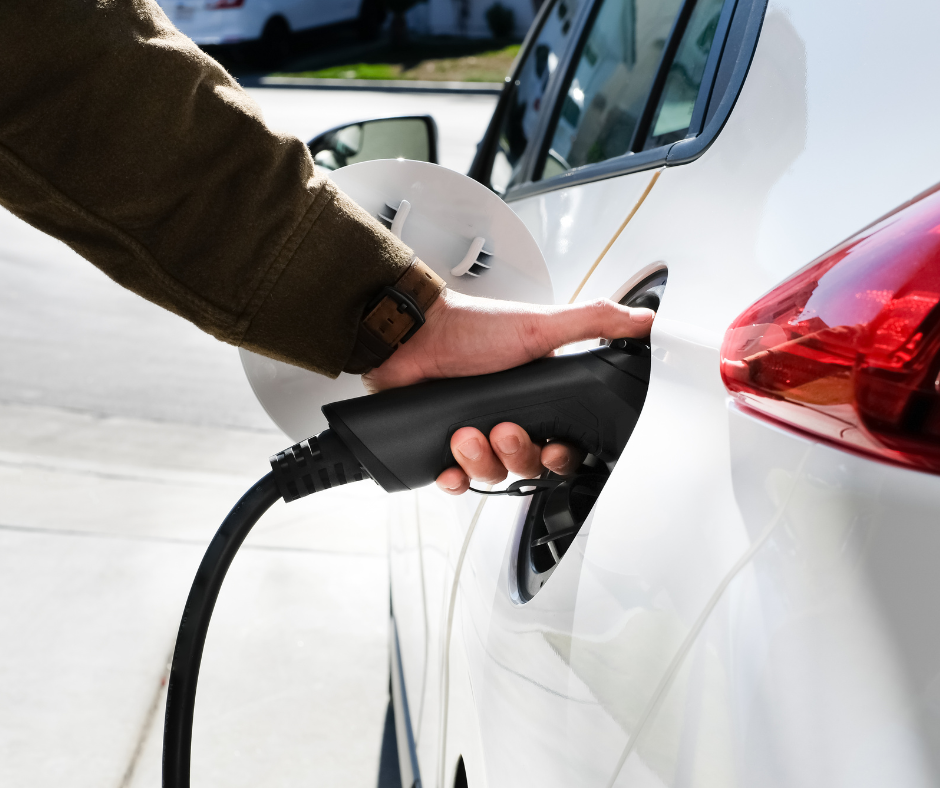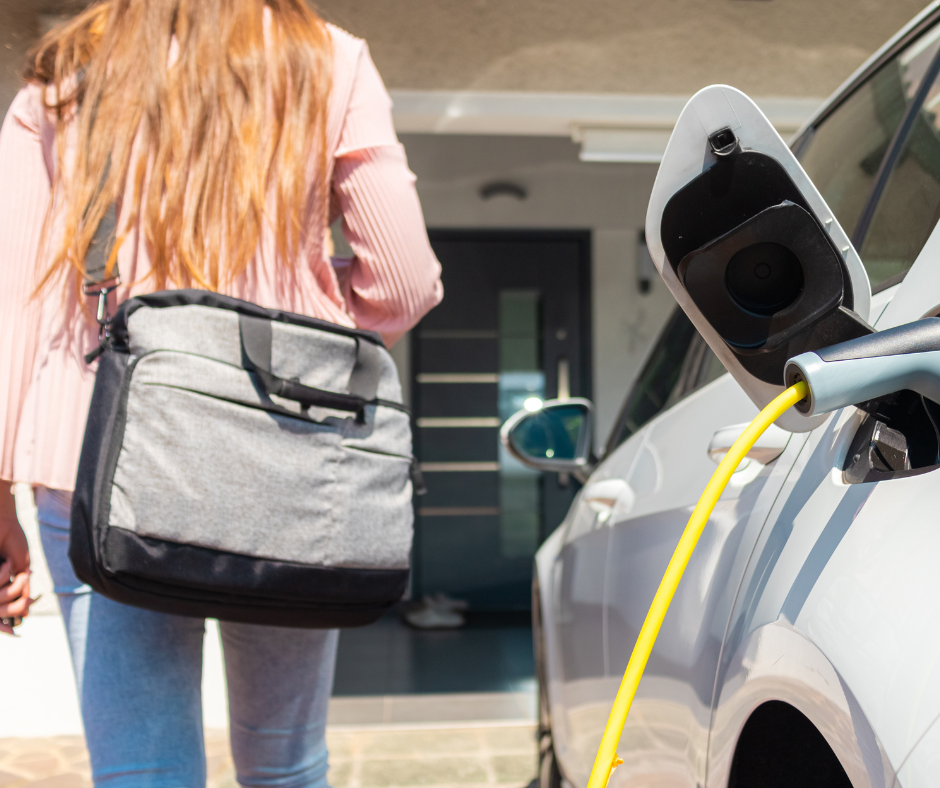A growing use of electric vehicles has created a new investment opportunity for businesses looking to provide EV chargers to consumers throughout Australia. If a growing market isn’t enough of an incentive, state governments have also announced grants to help business become part of this growing scheme. Yet, as with all sound investments, research is key. Knowing what to look for when selecting an EV charger is crucial to maximising your investment. In this article we will go over what considerations to keep in mind when purchasing a commercial EV charger. We will also discuss how to choose the right EV charger manufacturer.

Understanding Commercial EV Chargers
Commercial EV chargers come in various formats to meet specific needs. Understanding the levels of EV charging is essential to choosing the right charger for your establishment. The first step is to determine if a level 1, 2 or DC fast charger is best for your business.
Level 1 EV Charger
A Level 1 EV charger is the most basic form of electric vehicle (EV) charging equipment. This charger charges an EV using a standard household AC outlet. As a result, it’s the most accessible type of EV charger for home use since it doesn’t require special installation. With that said, they are also the slowest. These chargers are best suited for overnight charging or for EVs used for short commutes.
A Level 2 Home or Commercial EV Charger
A Level 2 EV charger is a significant step up in both price and charging capability. Level 2 EV chargers provide faster charging speeds and are suitable for residential and commercial settings. Level 2 EV chargers typically offer between 3.3 kW to 19.2 kW of power. This translates into faster charging speeds than Level 1 chargers.
Level 2 charging equipment is also more costly than a Level 1 charger. This is because of its ability to charger at faster speeds and the additional installation costs required by this kind of charger. Another potential cost to consider is whether homes or businesses have the adequate electrical capacity to support a Level 2 charger. If not, upgrades to electrical panels or infrastructure may also be required. Although these chargers seem costly, local government grants and schemes can help cover some or all of the costs involved.
These EV chargers are also a great option for public parking areas, workplaces and commercial settings. This is because they offer people at work, shopping or running errands a convenient way to charge their EV. Another reason that Level 2 EV chargers are a great commercial option is their compatibility with nearly all electric vehicles. As a result, they are a great choice for businesses looking to provide patrons with a faster EV charging option. Finally, level 2 chargers strike a balance between charging speed and the practicalities of installation and cost. As a result, these chargers are an essential part of EV charging infrastructure.
DC Fast Charging
DC fast charging stations offer rapid charging capabilities and are ideal for high-traffic public locations. Unlike AC chargers (level 1 & 2), which supply power to the vehicle’s onboard charger where it is converted to DC power before it charges the vehicle’s battery, DC fast chargers bypass the vehicle’s onboard charger and directly supply DC power to the battery. This allows for much faster charging speeds than level 1 and 2 chargers. For example, DC fast chargers can deliver 350kW or more and can charge a car from 0 to 80% in as little as 20 to 30 minutes. Since DC fast chargers add significant range to an EV’s battery in a short amount of time, they are especially useful for long-distance travel.

DC fast chargers are perfect for commercial parking lots, dedicated charging stations and along highways. They are the costliest out of all the options but also provide the fastest charging speeds thus making them more desirable among EV drivers. The good news is that in order to build up the EV charging infrastructure, government grants and schemes can help cover product and installation costs. With that said, some considerations should be kept in mind before purchasing a DC Fast Charger. The key things to consider are your desired charging speeds, connectivity options for both the charger and the car, durability, reliability and ease of use to ensure a seamless experience for users.
Evaluating Your Business Needs
A thorough assessment of your business’s specific needs can determine the scale and type of EV charging solution required. Consider factors like the expected volume of use, types of vehicles to be charged, and future growth to ensure your infrastructure can adapt to increasing demand. Location analysis is also critical. Strategic placement of charging stations can enhance accessibility and convenience for users.
Installing a commercial Electric Vehicle (EV) charger offers several incentives for businesses. Here’s a breakdown of key incentives:
- Attracting Customers: For businesses open to the public, such as retail outlets, restaurants, and entertainment venues, offering EV charging can attract customers who own electric vehicles. EV owners are likely to prefer and spend more time at locations where they can charge their vehicles, potentially increasing sales and customer loyalty.
- Employee Benefits: Installing EV chargers can be an attractive perk for employees who own electric vehicles. They can enhance job satisfaction and potentially aid in talent recruitment and retention. Installing an EV charger also demonstrates a commitment to sustainability and support for eco-friendly transportation choices.
- Enhanced Corporate Image: Demonstrating a commitment to environmental sustainability can significantly enhance a company’s image. By installing EV chargers, businesses show their support for reducing carbon emissions and promoting renewable energy sources. This appeals to environmentally conscious consumers and stakeholders.
- Revenue Generation: Businesses can choose to offer EV charging as a paid service thus creating a new revenue stream. By setting competitive pricing, businesses can recoup the installation and operational costs while providing valuable services to EV owners.
- Regulatory Compliance and Incentives: In some regions, governments offer financial incentives, tax credits, or rebates to businesses that install EV charging stations. These incentives reduce the initial cost. Additionally, as environmental regulations become stricter, having EV chargers may help businesses comply with future sustainability requirements.
- Preparation for the Future: With the increasing adoption of electric vehicles, demand for convenient charging locations is expected to grow. Early investment in EV charging infrastructure positions a business as a leader in sustainability and readiness for future trends in transportation.
- Partnership and Sponsorship Opportunities: Offering EV charging stations can open up new opportunities for partnerships with EV manufacturers, energy companies, and environmental organizations. These partnerships can enhance a business’s visibility and reputation in the market.
- Reducing Your Carbon Footprint: For businesses committed to sustainability, installing EV chargers contributes to reducing the overall carbon footprint of the company and its stakeholders. This action supports global efforts to combat climate change and promotes the use of clean energy.
- Property Value Increase: Properties equipped with EV charging stations may see an increase in value, as they offer an additional amenities that are becoming increasingly sought after by both commercial tenants and consumers.
In summary, the installation of commercial EV chargers offers a multifaceted incentive package for businesses, including financial benefits, enhanced corporate reputation, regulatory compliance, and a contribution to environmental sustainability. These incentives make the installation of EV charging stations an attractive proposition for forward-thinking businesses.
Technical Considerations
Investing in commercial EV charging infrastructure requires attention to several technical details. Compatibility with your existing electrical setup, smart charging capabilities for energy management, and adherence to safety standards are all pivotal. These elements ensure your charging stations are not only efficient but also safe and capable of integrating with future technological advancements.
Economic Considerations
Understanding the economic implications, including the upfront cost, ongoing maintenance, and operational expenses, is vital. Evaluating the total cost of ownership gives a clearer picture of the investment required. Additionally, exploring available grants, incentives, and financing options can significantly reduce initial costs, making the project more financially viable.
Choosing a Commercial EV Charger Manufacturer
Selecting the right EV charging station manufacturer is paramount. Look for manufacturers with a proven track record, a wide range of products, comprehensive warranty terms, and excellent customer support. EV chargers in Australia, for instance, should come from manufacturers who understand local regulations and can provide tailored support. Reviews, case studies, and the manufacturer’s reputation in the industry can offer invaluable insights into their reliability and service quality.
Implementation and Maintenance
Successful implementation involves more than just installing charging stations. It requires a strategic approach that considers the long-term operation and maintenance of the infrastructure. Choose manufacturers that offer robust support services, including maintenance and troubleshooting, to ensure your charging stations remain operational and efficient. Additionally, educating your staff and users on how to use the EV charging stations correctly is crucial for maximizing the benefits of your investment.
Environmental and Social Considerations
Adopting EV technology goes beyond business benefits; it’s about contributing to a sustainable future. Commercial EV chargers play a significant role in reducing carbon emissions and promoting cleaner air. By investing in EV charging infrastructure, businesses can enhance their corporate social responsibility profiles and align with broader environmental goals.
Contact Us
The journey to selecting the right commercial EV charger and manufacturer involves careful consideration of various factors, including technical requirements, economic implications, and environmental impact. By taking a strategic approach and partnering with reputable EV charging station manufacturers, businesses can make a meaningful contribution to the future of transportation. Embracing electric vehicle chargers is not just an investment in infrastructure but a commitment to sustainability and innovation. For more information or to discuss our preferred commercial EV chargers, please contact us.